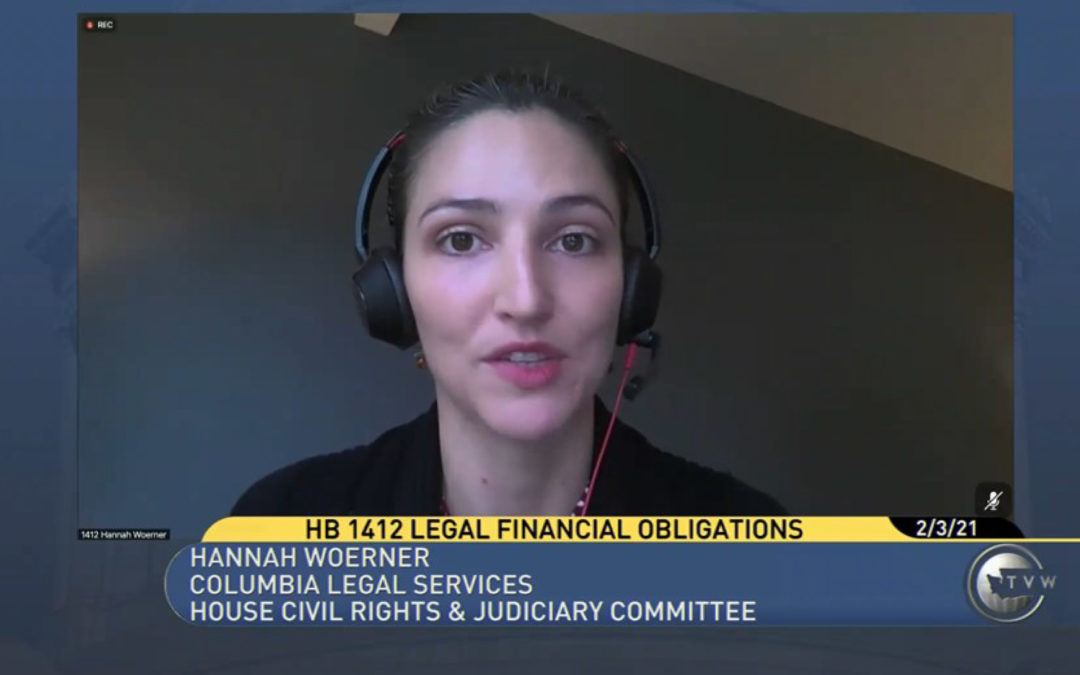Given the daunting challenges of holding the 2021 legislative session during a pandemic and fully virtual for the first time, I shared the concerns of many about what the legislature could actually accomplish. Against those expectations, the legislature went big and – together with champions, allies, and the communities we serve – achieved historic successes in passing policies that will reduce poverty and inequality.
Some key accomplishments:
- Reducing the state’s regressive tax structure by funding the Working Families Tax Credit and by passing a capital gains tax
- Massively investing in childcare and early childhood education through the Fair Start for Kids Act
- Systemic tenant protection legislation, both by passing a statewide “just cause” bill to prevent unfair evictions and by providing counsel to low-income tenants in eviction proceedings
- Restoring the right to vote to people leaving total Department of Corrections confinement
- Phasing out the discriminatory farm worker overtime exemption
- Several police accountability measures
- Providing $340 million in disaster assistance for immigrant workers ineligible for unemployment
- De-felonizing drug possession
- Making retroactive the removal of Robbery in the second degree as a third strike
In that spirit of going big, the legislature passed several of our priorities that we advocated for in collaboration with many allies:
- Extended the critical tool of a wage lien (SB 5355) to additional workers –including janitors, landscapers, and restaurant workers – providing a remedy for workers who aren’t paid their wages
- Ended the practice of suspending driver’s licenses for failure to pay a ticket (SB 5226) which served as a mechanism to criminalize poverty – credit to the Northwest Justice Project for their work on this issue for years
- Banned for-profit detention (HB 1090), removed the state prohibition on providing legal aid funding to programs that serve undocumented immigrants (HB 1072), and improved protections for low-income consumers facing bank garnishments (HB 1525)
Even with so many successes, several important bills didn’t pass and we’ll keep fighting for them. HB 1300 aimed to mitigate the harms of tenancy-related debt but was overshadowed by the other landlord-tenant bills and did not move. HB 1412 would help reform legal financial obligations but was caught in the turbulence following the Blake decision which invalidated the state’s felony drug possession statute. SB 5339, our juvenile record expungement bill, failed to get out of committee, sandbagged in part by an unexpectedly large fiscal note.
In addition to success on substance, there were improvements in process. It’s hard to dispute that the legislature benefited from being forced to using a remote testimony system due to the pandemic. Legislators were able to hear much more easily from people who may not have the ability to reach Olympia, due to geography or other barriers. We’ll encourage the legislature to continue providing robust opportunities for remote testimony for our clients and client communities.
On the other hand, we were troubled by the inadequate and inequitable provision of language interpretation to keep up with increased opportunities to testify. We’ll encourage the legislature to improve access for people testifying in other languages, as well as develop best practices when preparing community members who want to testify their preferred language.
There’s more work to do in interim and as we look ahead to a very important session in 2022. For now, let’s celebrate our victories and I want to thank our committed team of advocates, legislative champions, allies, and our client community who shared their stories and lived experiences to help advance social, economic, and racial equity for people living in poverty.
Thank you,

Antonio Ginatta
Policy Director

Recent Comments